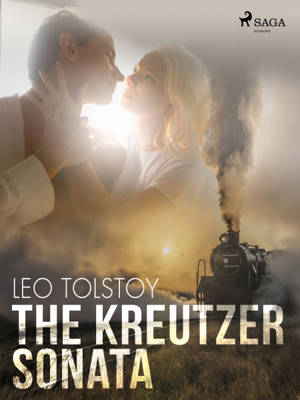
- Afhalen na 1 uur in een winkel met voorraad
- Gratis thuislevering in België vanaf € 30
- Ruim aanbod met 7 miljoen producten
- Afhalen na 1 uur in een winkel met voorraad
- Gratis thuislevering in België vanaf € 30
- Ruim aanbod met 7 miljoen producten
Zoeken
Omschrijving
"I wanted to run after him, but remembered that it is ridiculous to run after one's wife's lover in one's socks; and I did not wish to be ridiculous but terrible."
A man travelling on a long train journey overhears another passenger talk agitatedly about love and the positions of men and women in society. The passenger has a special interest in the subject because he was acquitted for killing his wife, believing she was having an affair with her music partner.
A bold and authentic discussion on lust, The Kreutzer Sonata is both fascinating and horrible. Tolstoy named it after Beethoven’s Kreutzer Sonata, and the story was banned in both Russia and the US, prompting Theodore Roosevelt to call Tolstoy a "sexual moral pervert." Anyway, enjoy!
Leo Tolstoy (1828-1910) was a Russian author, a master of realistic fiction and one of the world’s greatest novelists. Tolstoy’s major works include "War and Peace" (1865–69) and "Anna Karenina" (1875–77), two of the greatest novels of all time and pinnacles of realist fiction. Beyond novels, he wrote many short stories and later in life also essays and plays.
A man travelling on a long train journey overhears another passenger talk agitatedly about love and the positions of men and women in society. The passenger has a special interest in the subject because he was acquitted for killing his wife, believing she was having an affair with her music partner.
A bold and authentic discussion on lust, The Kreutzer Sonata is both fascinating and horrible. Tolstoy named it after Beethoven’s Kreutzer Sonata, and the story was banned in both Russia and the US, prompting Theodore Roosevelt to call Tolstoy a "sexual moral pervert." Anyway, enjoy!
Leo Tolstoy (1828-1910) was a Russian author, a master of realistic fiction and one of the world’s greatest novelists. Tolstoy’s major works include "War and Peace" (1865–69) and "Anna Karenina" (1875–77), two of the greatest novels of all time and pinnacles of realist fiction. Beyond novels, he wrote many short stories and later in life also essays and plays.
Specificaties
Betrokkenen
- Auteur(s):
- Uitgeverij:
Inhoud
- Aantal bladzijden:
- 76
- Taal:
- Engels
Eigenschappen
- Productcode (EAN):
- 9788726605273
- Verschijningsdatum:
- 24/02/2021
- Uitvoering:
- E-book
- Beveiligd met:
- Digital watermarking
- Formaat:
- ePub

Alleen bij Standaard Boekhandel
+ 8 punten op je klantenkaart van Standaard Boekhandel
Beoordelingen
We publiceren alleen reviews die voldoen aan de voorwaarden voor reviews. Bekijk onze voorwaarden voor reviews.











